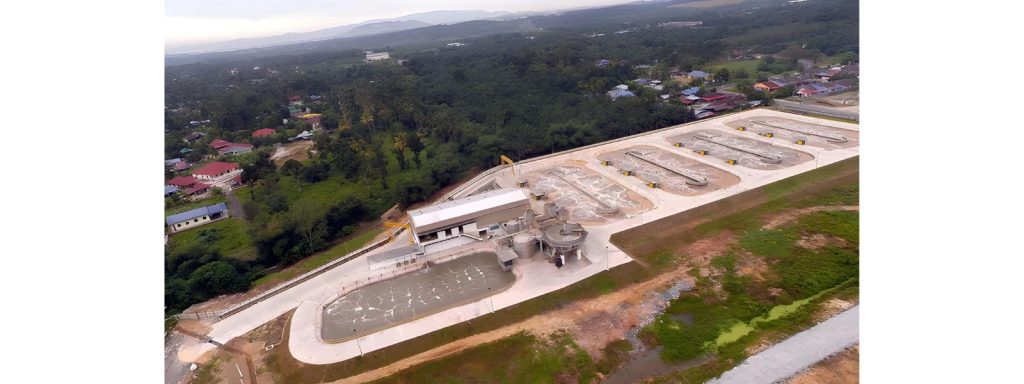Have you noticed how conversations about industrial wastewater treatment malaysia suddenly feel louder? It’s not just environmentalists waving banners anymore. Businesses, government agencies, and even local communities are finally asking the same question—what happens to all that dirty water after factories are done with it? The answer, as you guessed, lies in the growth of wastewater treatment plants in Malaysia.
Growing Awareness About Water Pollution
Water is life. But untreated industrial discharge? That’s trouble in a pipe. Malaysia’s rapid industrial growth has put pressure on rivers and lakes. And let’s face it, nobody wants their weekend fishing trip ruined by chemical foam floating downstream. This is where industrial wastewater treatment malaysia has become a hot topic.
Companies now see wastewater treatment plants in Malaysia not as optional luxuries but as basic necessities. Regulators are also tightening the rules, which means polluting rivers could cost more than cleaning them up.
Why People Care More Now?
- Public health concerns are on the rise.
- Water scarcity is becoming more real.
- Heavy fines make pollution a bad financial choice.
Stronger Regulations and Accountability
Malaysia isn’t playing nice when it comes to pollution. Stricter laws now require industries to install proper treatment facilities. Authorities conduct regular checks, and penalties are stiffer than ever. In short, there’s no escape route for those ignoring wastewater rules.
Industries once saw treatment plants as costly investments. Now, they see them as shields protecting them from legal trouble and angry communities. And yes, protecting the environment doesn’t hurt either.
A Shift in Business Mindset
Many industries are realizing that clean water equals good PR. No one wants headlines like, “Factory Found Dumping Waste in River.” Today, wastewater treatment plants in Malaysia are being built into new factories from the start. It’s less hassle, smarter business, and a step toward sustainability.
Technology Making Treatment Easier
Here’s the good news: technology is making wastewater treatment faster, cheaper, and smarter. From advanced filtration systems to automated monitoring tools, treatment is no longer an outdated, messy process. Companies like Techkem Water Technologies are leading with modern solutions, proving that wastewater management doesn’t have to be a nightmare.
Some of the key advances they introduced are:
- Energy-efficient filtration methods save cost.
- Real-time monitoring helps detect issues before disasters.
- Reuse and recycling of treated water reduce wastage.

Environmental and Social Impact
Clean rivers don’t just look good; they benefit everyone. Treated wastewater can actually be reused for agriculture or industrial cooling. This reduces demand for freshwater, a resource already under stress in Malaysia.
Communities living near factories are also pushing harder for accountability. Public pressure adds weight to environmental policies. In fact, industrial wastewater treatment malaysia has become as much about reputation as compliance.
Why It Matters to You?
You may not be able to know who owns a factory but dirty water borders on everybody. Its fixing price transpires into the prices of the daily commodities. By managing their wastewater companies are assisting in keeping your bills down, your health safe and even allow you to take a fishing trip on the weekend.
The Economic Angle Nobody Talks About
Let’s be honest, when companies hear “industrial wastewater treatment in Malaysia,” their first thought is cost. But here’s the twist: not treating wastewater is actually more expensive in the long run. Between government penalties, cleanup expenses, and public backlash, businesses end up paying far more than they save.
Forward-looking industries now see wastewater treatment plant in Malaysia as an investment. Treated water can often be recycled back into operations, cutting down on water bills. Some companies even repurpose treated water for landscaping or non-drinking uses, which means extra savings.
And let’s not forget foreign investors. They’re paying close attention to environmental standards before setting up shop in Malaysia. A strong commitment to wastewater treatment sends the right message—it says the country is serious about sustainable growth.
So, while treatment may look like a line item on the expense sheet, it’s really a ticket to long-term profitability. Cleaner rivers, happier communities, and stronger business reputations all start with one thing: proper wastewater management. And that’s why you’ll be hearing about industrial wastewater treatment in Malaysia a lot more in the years ahead.
Key Points
- The need to treat industrial wastewater Malaysia is increasingly acknowledged due to stricter regulations as well as the desire of the people.
- Presence of treatment plants assists companies to escape punishments and appear religiously before the government.
- Innovation renders the process of water treatment less expensive and more eco friendly.
- Clean water is beneficial as it ensures business and surrounding people safe water is preserved over an extended period.
Conclusion: The Road Ahead
In the coming years, Malaysia is going to construct additional wastewater treatment facilities. Individuals will continue to invest in cleaner technologies and stricter rules. Due to the threat of climate change to water resources, sustainable treatment is no longer a luxury, it is included in the strategy to survive.
So, the next time the phrase wastewater treatment is mentioned, know not to look away. Consider it the silent hero in Malaysia that makes rivers clean and communities to be healthy.
FAQs
- Why is industrial wastewater treatment in Malaysia so important now?
Because stricter laws, public pressure, and rising water scarcity make untreated discharge a serious issue.
- How do wastewater treatment plants in Malaysia help industries?
They reduce pollution, lower penalties, and even allow reuse of treated water for operations.
- Is industrial wastewater treatment costly?
It requires investment, but modern systems cut costs while avoiding expensive fines and reputational damage.
Read Also:-
What Are the Economic Benefits of Chemical Wastewater Treatment for Factories?
Why Efficient Waste Water Treatment Is Key to Operational Success?



